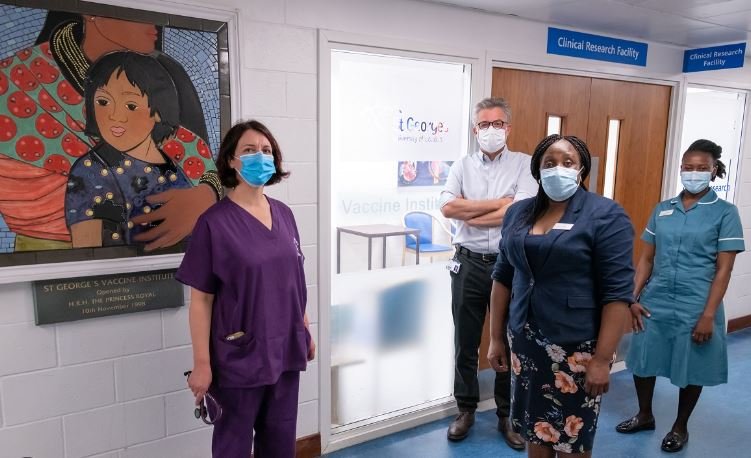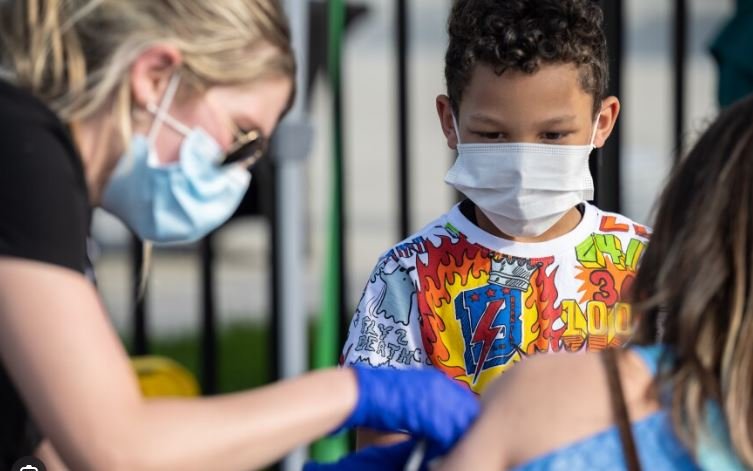Vaccination drives in Prince George’s County schools are vital for ensuring student health and safety. These initiatives aim to protect children from preventable diseases, promote public health, and maintain a safe learning environment. This article explores how these drives work, their benefits, and their impact on the school community.

The Importance of School Vaccination Drives
Vaccination drives in Prince George’s County schools play a critical role in safeguarding student health. Vaccines protect children from various infectious diseases, such as measles, mumps, rubella, and influenza. By ensuring that students receive their vaccinations, schools help prevent outbreaks and contribute to the overall health of the community.
These drives are essential in maintaining high vaccination rates, which create herd immunity. Herd immunity occurs when a large portion of the population is immunized, reducing the spread of diseases. This protection benefits not only vaccinated individuals but also those who cannot be vaccinated due to medical conditions or age.
How Vaccination Drives Operate in Schools
Vaccination drives in Prince George’s County schools involve a collaborative effort between school districts, local health departments, and healthcare providers. Here’s how these drives typically operate:
- Coordination and Planning: Schools and health departments coordinate to schedule vaccination drives. They plan the logistics, such as dates, times, and locations, to ensure maximum participation. Additionally, they communicate with parents and guardians about the importance of vaccinations and the details of the drive.
- On-Site Vaccinations: During the vaccination drive, healthcare professionals set up stations within the school premises. They administer vaccines to students, usually with minimal disruption to the school day. These professionals are trained to handle any potential side effects and provide immediate care if needed.
- Parental Consent and Education: Before vaccinations are administered, schools obtain consent from parents or guardians. They provide educational materials about the vaccines, including their benefits and possible side effects. This ensures that parents make informed decisions regarding their child’s health.
- Follow-Up and Record Keeping: After the vaccination drive, schools update health records to reflect the immunizations received. They also follow up with any students who missed the drive or require additional doses. Keeping accurate records helps schools monitor vaccination coverage and compliance with state health regulations.
Benefits of Vaccination Drives
Vaccination drives in Prince George’s County schools offer several benefits, both for individual students and the broader community:
- Disease Prevention: Vaccinations protect students from various infectious diseases, reducing the risk of outbreaks. This protection is crucial in school settings, where children are in close contact with one another.
- Public Health Enhancement: High vaccination rates contribute to herd immunity, which helps protect vulnerable populations, such as infants, the elderly, and those with compromised immune systems.
- Educational Continuity: By preventing illness, vaccination drives help ensure that students stay healthy and can attend school regularly. This continuity is vital for academic success and overall well-being.
- Community Trust and Engagement: Effective vaccination drives build trust between schools, parents, and public health officials. Engaging the community in these efforts fosters a collaborative approach to maintaining public health.
Challenges and Solutions
Despite their benefits, vaccination drives in Prince George’s County schools face several challenges:
- Vaccine Hesitancy: Some parents may have concerns about vaccine safety or effectiveness. Schools address this by providing accurate information, engaging with healthcare professionals, and addressing common misconceptions.
- Logistical Issues: Organizing vaccination programmes requires careful planning to ensure that all students receive their vaccines. Schools can overcome logistical challenges by working closely with health departments and healthcare providers to streamline the process.
- Tracking and Compliance: Maintaining accurate vaccination records and ensuring compliance with state regulations can be challenging. Schools use digital systems to track immunizations and follow up with students who need additional doses.
Conclusion: Ensuring a Healthy School Environment
In conclusion, vaccination drives in Prince George’s County schools are essential for protecting student health and promoting public wellness. These initiatives prevent the spread of infectious diseases, contribute to herd immunity, and support a safe learning environment. By addressing challenges and engaging the community, schools can enhance the effectiveness of vaccination drives and ensure that students remain healthy and ready to learn.

